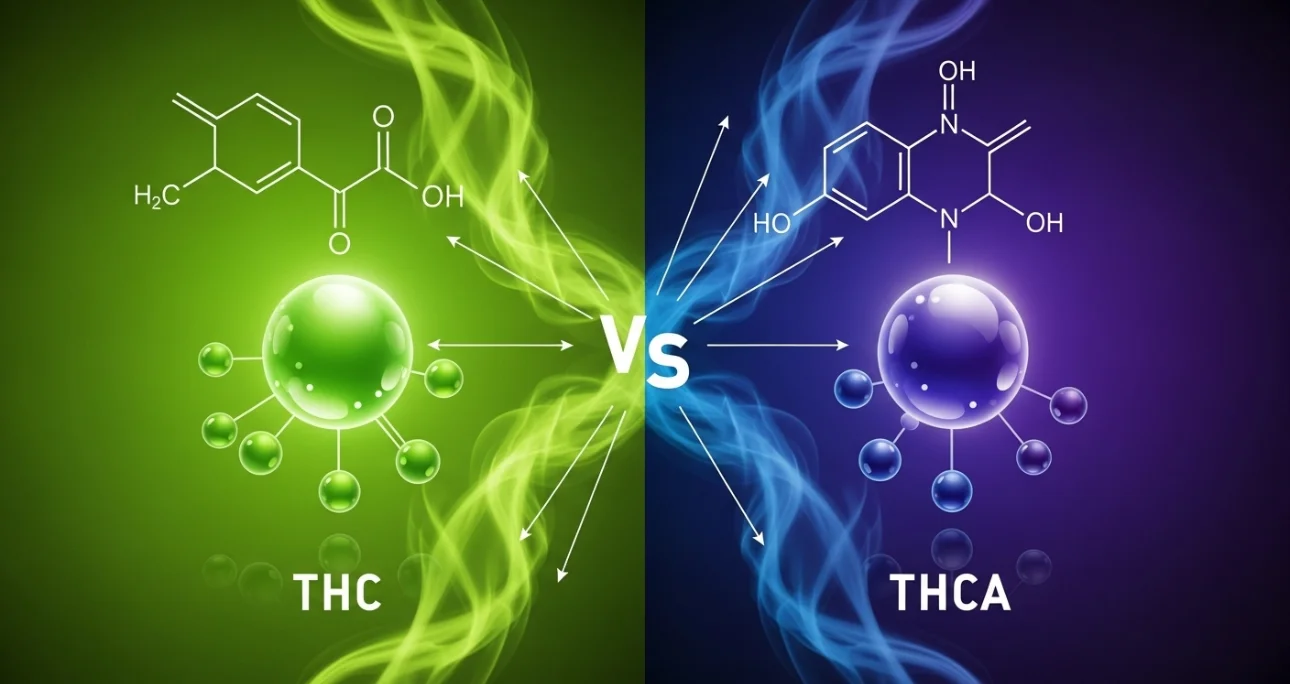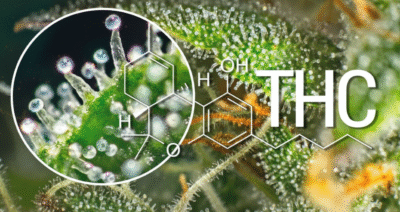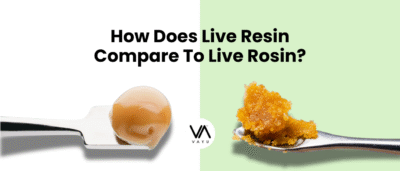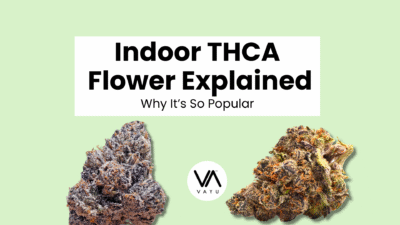Cannabinoids have been used for thousands of years for recreational and medicinal purposes. Among those, THC and THCA are the most significant cannabinoids that are naturally found in hemp or cannabis plants. THC and THCA both share a similar origin, but their effects, potency, and functions differ significantly.
What is THC
THC or Tetrahydrocannabinol is a primary psychoactive cannabinoid. It is one of the primary cannabinoids that is responsible for the “high“. THC directly binds with the CB1 receptors in the brain, influencing the way people think, feel and perceive things.
THC is widely used for recreational purposes and has several therapeutic benefits. Many studies have revealed that THC can help relieve pain, reduce nausea, and promote mental relaxation.
THCA → THC: Understanding the Conversion Process
What is Decarboxylation?
THCA carries an additional carboxyl group (COOH) in its molecular structure. It actually makes THCA a larger molecule and inactive compound, changing the way it interacts with the body’s endocannabinoid system.
Decarboxylation, a heating process, converts THCA into THC by losing the carboxyl group (COOH). This reaction is necessary to activate the “THC” and unlock its euphoric and psychoactive effects that people want.
Methods of Conversion
There are different effective ways to convert THCA into THC.
Smoking: Dried THCA flower can be ground and rolled into a joint or used in a pipe. Direct heat quickly decarboxylates the THCA and gives instant psychoactive effects.
Vaping: THCA concentrates and oil are gently heated in vaporizers to provide a smooth flavor. Vaping activates THC without burning the material.
Homemade Edibles: THCA infused into oils, gummies, or edibles are heated to convert THCA into THC. Intake of these edibles provides longer lasting and more balanced euphoric effects.
3. Why Raw THCA Doesn’t Get You High?
The molecular structure of THCA prevents it from binding properly with CB1 receptors in the brain’s endocannabinoid system. It is non-psychoactive until it is decarboxylated. After heating, THCA converts into THC and activates its mood-altering and therapeutic properties.
Differences Between THCA and THC
THC and THCA are both naturally occurring cannabinoids, but they have different chemical compositions, effects, psychoactivity, legal status, and ideal use cases.
1. Chemical & Structural
- THCA: THCA has an additional carboxyl group in its molecular structure that makes it larger and inactive. It does not properly bind with CB1 receptors in the brain’s endocannabinoid system, therefore cannot induce any euphoric effects.
- THC: THC is an active cannabinoid. It strongly binds CB1 receptors in the central nervous system and CB2 receptors in peripheral tissues, affecting mood, pain, cognition and even appetite.
2. Psychoactive Nature
- THCA: It is non-psychoactive in its raw form and does not cause any high.
- THC: It is highly psychoactive and directly interacts with the brain’s endocannabinoid system. It delivers euphoric, relaxing, and sensory-altering effects after consumption.
3: Onset and Duration of Effects
- THC: It is widely used for recreational purposes. Direct THC inhalation through vaping and smoking delivers quick onset effects. Duration of effects varies, depending on body chemistry, dosage and consumption method.
4. Legal Status
- THCA: Under the 2018 Farm Bill, THCA derived from hemp plants that contain less than 0.3% delta 9-THC is federally legal. Users can also get THCA medical benefits even in states where cannabis is restricted because of its non-psychoactive nature.
- THC: THC is highly psychoactive; therefore, it is considered a controlled cannabinoid. It remains restricted in some states, meaning interstate transport and online sales across state lines are not allowed. Users should always check their local laws before purchasing or using THC products.
5. Perfect For
- THCA: Ideal for frequent users who want mild and long-lasting effects without intoxication. Also suitable for medical patients and wellness-focused consumers who need its therapeutic benefits.
- THC: Best for cannabis enthusiasts who are looking for strong euphoric and energizing effects. Controlled THC doses are used for medicinal purposes, including pain relief, reducing nausea and stimulating appetite.
Potential Health & Therapeutic Benefits
THCA (Tetrahydrocannabinolic Acid)
Anti-Inflammatory: It helps to reduce inflammation and support treatment for conditions like arthritis and inflammatory bowel disease.
Neuroprotective: THCA can support brain health and manage neurodegenerative disorders such as Alzheimer’s and Parkinson’s.
Anti-Nausea & Anti-Seizure: It can give relief from nausea and seizure activity, particularly in those undergoing chemotherapy.
Appetite Regulation: THCA has been observed to stimulate appetite in patients with conditions like cachexia and anorexia nervosa.
Metabolic Support: It may reduce adiposity and prevent metabolic dysfunction caused by obesity.
THC (Tetrahydrocannabinol)
Pain Relief: Medicines containing THC help to reduce pain perception, including neuropathic and arthritis pain.
Anti-Nausea: It may aid in reducing chemotherapy-induced nausea and vomiting.
Appetite Stimulation: THC can improve food intake and weight gain in chronically ill patients.
Sleep and Relaxation: It often promotes deep relaxation and improves sleeping patterns.
Mood Regulation: THC influences the neural activity and helps in emotional regulation.
Frequently Asked Questions
THCA itself does not produce any high, because it is non-psychoactive in raw form. When THCA is exposed to heat, it converts into THC, which enables the mood-enhancing and euphoric effects of cannabis.
No, a 20% THCA dose does not provide the same high as a 20% THC. These numbers show the cannabinoid potency, not the strength. THCA must undergo the decarboxylation process to convert into THC for delivering euphoric effects. 20% THCA represents the potential THC content, not the active THC.
Raw THCA is non-psychoactive and does not accumulate in the body. After decarboxylating into THC, it can remain in the body for days to weeks. Exact duration depends on dosage, frequency of use, and individual physiology.
Yes, THCA can be used in raw form, like tinctures, or cold-pressed oils and capsules. It allows the users to get the therapeutic benefits without inducing intoxication and a high.
THCA can stay fresh when stored properly in an airtight glass jar. It must be kept in a cool and dry place away from direct sunlight and heat. Exposure to heat can trigger decarboxylation into THC and reduce its psychoactive effects.




